Tenancy by the Entireties Protection Weakened: The Craft Case + Cook Islands / Nevis Update
Volume XI, Number 2 – May 2002
INTRODUCTION
Tenancy by the entireties (“TBE”) is a form of joint ownership which is created during marriage and which can only exist between spouses. Among the traditional legal characteristics of TBE is that one spouse cannot mortgage, sell or otherwise dispose of any portion of the property without the joinder of the other spouse, as the property is deemed to be owned by the marital unit and not by either spouse individually.
As a result of this legal fiction, the TBE form of property ownership has historically protected such property from the claims of the creditors of one spouse. For more than 50 years, every federal court reviewing tenancies by the entireties has concluded that a federal tax lien cannot attach to such property to satisfy an individual spouse’s tax liability, and indeed, the IRS’s own internal manual lists TBE property as among the assets beyond the reach of the federal tax lien.
THE CRAFT CASE
In 1988, the IRS assessed $482,446 in unpaid income tax liabilities against Don Craft, the husband of Sandra Craft. When Mr. Craft failed to pay, a federal tax lien attached to “all property and rights to property, whether real or personal, belonging to” him. At the time the lien attached, Mr. and Mrs. Craft owned real property in Grand Rapids, Michigan, as tenants by the entirety. After notice of the lien was filed, they jointly executed a quitclaim deed transferring the couple’s interest in the property to Mrs. Craft for one dollar. When Mrs. Craft attempted to sell the property a few years later, a title search revealed the lien.
The IRS agreed to release the lien and allow the sale with the stipulation that half of the net proceeds be held in escrow pending determination of the IRS’s interest in the property. The Government claimed that its lien had attached to the husband’s interest in the tenancy by the entirety and it further asserted that the transfer of the property by Mr. and Mrs. Craft to Mrs. Craft was invalid as a fraudulent transfer.
The Michigan Uniform Fraudulent Transfer Act provides that TBE property cannot be the subject of a fraudulent transfer in a case where only one spouse is the debtor. Had there been no transfer, the IRS, according to its own operations manual, would have considered “property owned as tenants by the entirety” as among the assets beyond the reach of the Government’s tax lien.
Under long-standing doctrine, federal law looks to state law to determine what rights a taxpayer has in a property the IRS seeks to reach, and then looks to federal law to determine whether a taxpayer’s state-law delineated rights qualify as “property” or “rights to property” within the meaning of the federal tax lien legislation.
On April 17, 2002, the U.S. Supreme Court, after recognizing that under Michigan law, one tenant by the entirety has no interest in the property separable from that of the other, each being vested with an entire title, proceeded to ignore Michigan law and found that Mr. Craft had individual rights in the property to which the federal tax lien could attach. The case was sent back to the lower court to determine the value of Mr. Craft’s property interest to be turned over to the IRS.
SUMMARY
The Supreme Court, by discarding 50 years of case law and the IRS’s own manual, once again illustrates that a result oriented court can and will overlook, undo, or just plain ignore existing, settled law in a heartbeat. The solution? Offshore asset protection: remove the power of any U.S. court to undo your planning.
COOK ISLANDS UPDATE
In two sets of reports issued in 1998 and in early 2000, both the OECD and the FATF “black-listed” thirty-five jurisdictions in Europe, the Carribean, and in the Pacific, as engaging in “harmful tax competition” and for being non-cooperative in the battle against money laundering. Both the Cook Islands and Nevis had been included in that list. In November 2000, the APN (Vol. IX, No. 2) reported that the Cook Islands and Nevis had enacted remedial anti-money laundering legislation.
The original OECD initiative called for the elimination of what was termed “harmful tax competition” by tax havens. It defined a tax haven as a jurisdiction which: imposes no or nominal tax; has a lack of effective exchange of information infrastructure; has a lack of transparency (availability of information regarding beneficial ownership of entities); permits the formation of entities which pay nil or nominal taxes and which conduct no local business.
Following the publication of the initial black list and the ensuing discussions held between the OECD and listed jurisdictions, the OECD discovered that effectively addressing the first and last items of the above definition would be impossible to achieve as several of the more prominent OECD members carried out such practices in one form or another. Thus, the OECD eliminated those items (now only requiring exchange of information and transparency) and extended the compliance deadline.
COOK ISLANDS ACTION
Late in March 2002, the Prime Minister of the Cook Islands, Dr. Robert Woonton, signed a letter of commitment addressed to the OECD. The letter had the effect (on April 18, 2002) of causing the removal of the Cook Islands from the dreaded black list (Nevis took similar action and was also removed).
The letter of commitment provides that: the Cook Islands will, by December 31, 2005, ensure that information on the beneficial ownership of companies, partnerships, and other entities, and on trustees and beneficiaries of trusts is available to its tax or regulatory authorities, provided the information is present within the Cook Islands (whether that information will be available to authorities in other countries will depend on the terms of any tax information exchange agreements – there are currently no such tax information exchange agreements), the Cook Islands will require that accounts be kept by companies, partnerships, trusts and other entities, and that the Cook Islands regulators will have access to bank account information relevant to tax matters to the extent necessary to perform obligations under any tax exchange information agreement.
Finally, the Cook Islands also agreed to enter into tax information exchange agreements which will become effective for criminal tax matters for the first tax year after December 31, 2003, and for civil matters for the first tax year after December 31, 2005. Protections will be included to preclude ‘fishing expeditions’ and the use of information provided for purposes other than those agreed to. The information will not be available where the party requesting it cannot under its own laws, for the purpose of enforcing its own tax laws, obtain such information.
SUMMARY
As the effectiveness of properly structured asset protection plans is NOT based upon secrecy, the tax information exchange agreements which will be entered into will have NO EFFECT WHATSOEVER on the protection afforded by Cook Islands law for our clients’ trusts.
Protect your assets with our proven strategic approach and experience over 28+ Years. Call 305-447-0061, or simply send us a message using our contact page









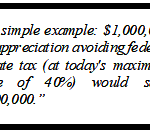
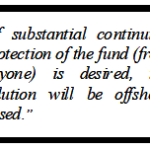



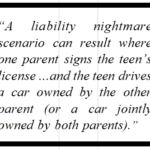
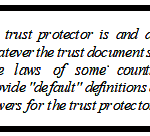
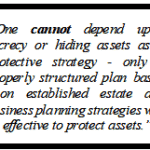

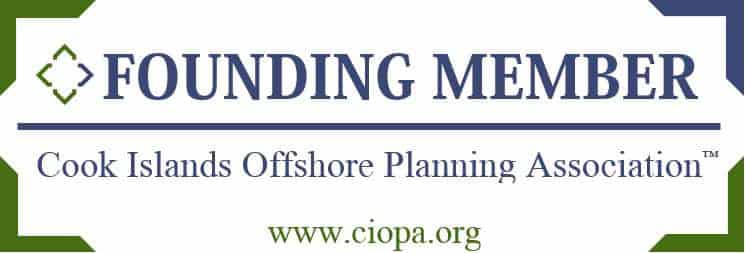
Connect
Connect with us on the following social media platforms.